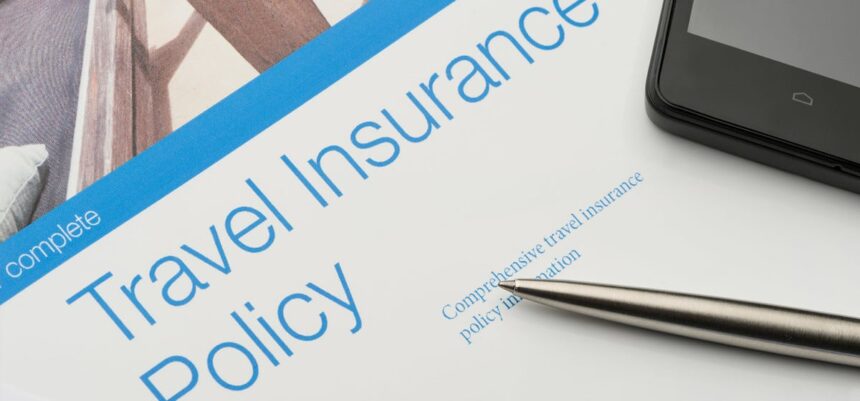When preparing for a trip, there are many things to consider. From booking flights and choosing accommodations to organizing activities and packing your bags, it’s easy to get lost in the excitement. However, one crucial aspect that is often overlooked is travel insurance. While it might not seem like a top priority, securing the right travel insurance can make all the difference in protecting yourself from unexpected events. This article will break down the importance of travel insurance policies, what they cover, how to choose the right one, and common misconceptions that might influence your decision.
What Are Travel Insurance Policies?
A travel insurance policy is a contract between the traveler and the insurance provider designed to offer coverage for a variety of potential risks during a trip. It provides financial protection for unexpected events that could occur before or during your travels. These events can include trip cancellations, medical emergencies, lost baggage, flight delays, and more.
The concept of travel insurance is simple: it provides a safety net against financial loss due to unforeseen circumstances that could derail your travel plans. Travel insurance policies can be customized to suit different types of travelers, whether you’re planning a short vacation, a long-term trip abroad, or a business excursion.
Types of Travel Insurance Policies
Travel insurance policies come in several types, each designed to cover different aspects of your journey. Some travelers may opt for basic coverage, while others may prefer more comprehensive plans depending on the length and nature of their trips.
- Single Trip Insurance – This is the most common type of policy, offering coverage for one specific trip. It can be purchased as needed for each individual trip.
- Annual Travel Insurance – For those who travel frequently throughout the year, an annual insurance policy might be more cost-effective. This type of policy covers multiple trips within a year, providing coverage for all your travels.
- Medical Travel Insurance – If you’re primarily concerned about health risks during your travels, medical travel insurance is designed to cover medical emergencies, including treatment costs, hospitalization, and repatriation.
- Comprehensive Travel Insurance – This type of insurance covers a broad range of potential issues. It typically includes medical coverage, trip cancellations, lost baggage, flight delays, and more. For many travelers, comprehensive policies offer peace of mind as they cover multiple eventualities.
- Specialized Travel Insurance – Some policies cater to specific types of travel. For instance, adventure travel insurance is tailored for those engaging in high-risk activities like skiing, hiking, or scuba diving.
- Student and Backpacker Insurance – For young travelers and those embarking on long-term journeys, student and backpacker insurance policies are designed to accommodate extended trips, providing coverage for medical emergencies, lost belongings, and trip cancellations.
Each type of policy offers different levels of protection, so it’s essential to choose one that fits your specific needs.
Why You Need Travel Insurance
Travel insurance is a safeguard against the unexpected, providing protection against potential disruptions during your trip. Here are several key reasons why you should strongly consider purchasing travel insurance:
1. Peace of Mind
Traveling can be stressful, especially if you’re traveling to a foreign country with unfamiliar risks. A good travel insurance policy provides peace of mind, knowing that you have protection against the unexpected. Whether it’s a medical emergency, lost luggage, or trip cancellation, knowing that you’re covered can significantly reduce your stress levels.
2. Protection Against Medical Emergencies
One of the most important reasons for purchasing travel insurance is to ensure you’re protected in case of medical emergencies. While many countries offer healthcare, foreign medical care can be expensive, and your regular health insurance might not cover international treatment.
In the event of an injury or illness while traveling, medical insurance can cover the costs of treatment, hospitalization, or even emergency evacuation. For example, if you’re in an accident abroad, medical evacuation to your home country could cost thousands of dollars, but with the right coverage, it’s all taken care of.
3. Trip Cancellations and Interruptions
Travel plans are not always predictable. Sometimes, unavoidable situations may force you to cancel or interrupt your trip. Whether it’s a sudden illness, a family emergency, or an unexpected event like a natural disaster, travel insurance helps you recoup any non-refundable costs, such as flight tickets, hotel bookings, and pre-paid tours.
4. Protection for Lost or Delayed Baggage
Losing your luggage or experiencing delays can cause major inconveniences during a trip. Travel insurance can cover lost baggage, reimburse you for any personal items, and even pay for necessary items like toiletries and clothing if your bags are delayed. This ensures you aren’t stuck without your essentials.
5. Coverage for Flight Delays
Flight delays are another frustrating but common travel issue. Whether the delay is due to bad weather, technical issues, or other unforeseen factors, travel insurance policies can cover the costs of food, accommodation, and transportation during the delay. This ensures that you’re not left to bear the financial burden of extended delays.
6. Emergency Evacuation and Repatriation
While this type of coverage is less common, it can be crucial in extreme circumstances. If you find yourself in an area affected by a natural disaster, civil unrest, or political instability, emergency evacuation coverage will get you to safety. If you’re seriously ill or injured, repatriation insurance can ensure you’re transported back to your home country for medical treatment.
What Does Travel Insurance Cover?
Travel insurance coverage varies depending on the provider and the specific policy. While some basic policies only cover trip cancellations and lost baggage, comprehensive plans offer a wide range of coverage options. Below are the key components of most travel insurance policies:
1. Medical Coverage
Medical emergencies are one of the top reasons people purchase travel insurance. Travel insurance policies with medical coverage provide protection for emergency medical expenses, including doctor visits, hospitalization, and prescription medications.
2. Trip Cancellation and Interruption
This coverage protects you if you need to cancel or cut short your trip due to unexpected events. The policy will reimburse you for any non-refundable trip costs, such as flights, hotels, and tours.
3. Trip Delay
If your trip is delayed, either due to weather conditions or other factors, the policy will cover additional expenses such as accommodation, food, and transportation.
4. Baggage Loss or Delay
In the unfortunate event that your baggage is lost or delayed, travel insurance can help. Baggage loss coverage compensates you for the cost of replacing essential items, while baggage delay coverage provides reimbursements for emergency purchases.
5. Travel Assistance Services
Many travel insurance policies offer 24/7 travel assistance services. This can include help with booking a new flight, finding medical assistance, or replacing lost passports. This service can be invaluable during a trip.
6. Emergency Evacuation
In the event of a serious illness or injury, or if there is a natural disaster, emergency evacuation coverage ensures that you can be safely evacuated from a location and brought to a nearby hospital or home.
7. Accidental Death and Dismemberment
If you are involved in a serious accident while traveling, this coverage provides a financial payout to you or your beneficiaries. The payout can assist with funeral costs or provide support in case of permanent disability.
How to Choose the Right Travel Insurance Policy
Choosing the right travel insurance policy can be overwhelming with so many options available. To make the process easier, consider the following factors:
1. Understand Your Needs
Before purchasing a policy, assess your needs. Are you traveling domestically or internationally? Are you engaging in high-risk activities like skiing or hiking? Do you need just medical coverage, or are you looking for more extensive protection? Understanding what you need will help you narrow down your options.
2. Compare Policies
Take time to compare different policies from various providers. Look at what each policy covers and the associated costs. While the cheapest option might seem appealing, it may lack essential coverage. Pay attention to the specifics of medical coverage, cancellation policies, and coverage for lost baggage.
3. Read the Fine Print
It’s important to read the terms and conditions of the policy thoroughly. Check for any exclusions or limitations that could affect your coverage. For example, some policies may not cover pre-existing medical conditions or activities like bungee jumping or scuba diving. Understanding the fine print will help avoid surprises if you need to file a claim.
4. Consider Your Trip Duration
If you’re going on a short trip, a basic policy may suffice. However, for longer trips, an annual plan or a more comprehensive policy is often a better value. Longer trips are more likely to involve unexpected disruptions, so having more extensive coverage can give you greater peace of mind.
5. Provider Reputation
Look for a reputable provider with a track record of excellent customer service. You want to choose an insurance company that will be there for you in times of need. Research customer reviews and ratings to find a reliable provider that you can trust.
6. Check for Additional Benefits
Some travel insurance policies come with added perks, such as coverage for rental cars, adventure activities, or travel delays. Depending on your trip, these benefits could be useful.
Common Misconceptions About Travel Insurance Policies
There are several myths surrounding travel insurance that may prevent travelers from purchasing the coverage they need. Here are some of the most common misconceptions:
“Travel Insurance is Expensive”
Many travelers believe that travel insurance is costly, but in reality, it is often quite affordable. The cost typically ranges between 4% and 10% of the total trip cost, which is a small price to pay for protection. While higher coverage levels may cost more, it’s worth investing in the right policy to protect your trip.
“My Health Insurance Covers Me Abroad”
While some health insurance policies offer limited coverage abroad, most do not provide full coverage for medical emergencies. Travel insurance is specifically designed to cover medical expenses incurred outside your home country, including hospital visits, treatments, and emergency evacuation.
“I Don’t Need Travel Insurance for Domestic Travel”
Even for domestic trips, travel insurance can be beneficial. It provides coverage for delays, cancellations, lost baggage, and medical emergencies. Even within your home country, travel disruptions can occur, making insurance a worthwhile investment.
“I Can Buy Travel Insurance Later”
It’s always better to purchase travel insurance as soon as you book your trip. Buying insurance after booking may limit your options and coverage, especially if something unexpected happens before you buy the policy. Waiting too long may even mean you miss out on important protections, such as trip cancellation coverage.
Conclusion
Travel insurance is an essential part of preparing for any trip. Whether you’re traveling across the globe or just taking a weekend getaway, having the right coverage can make all the difference. From protecting yourself against medical emergencies to covering trip cancellations and lost baggage, travel insurance provides invaluable peace of mind.
Before you book your next adventure, take the time to research and select the best travel insurance policy for your needs. By understanding what coverage you require, comparing different policies, and addressing common misconceptions, you’ll be well-equipped to make an informed decision. With the right travel insurance, you can travel with confidence, knowing that you have a safety net if things don’t go as planned.

